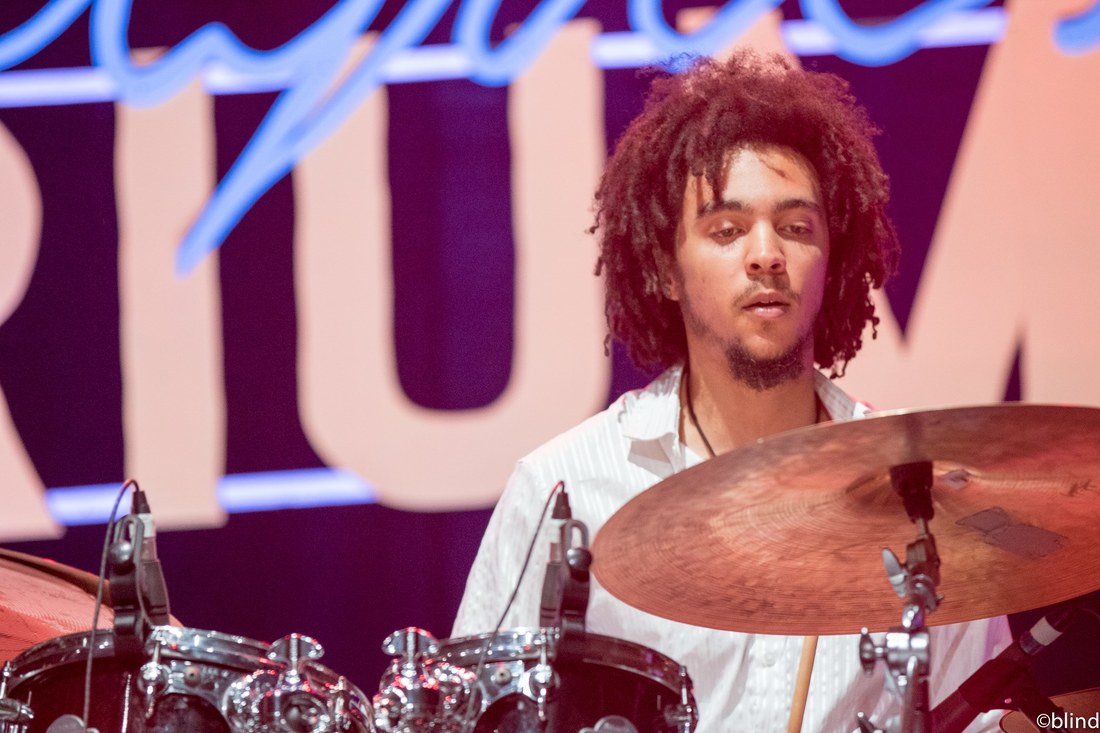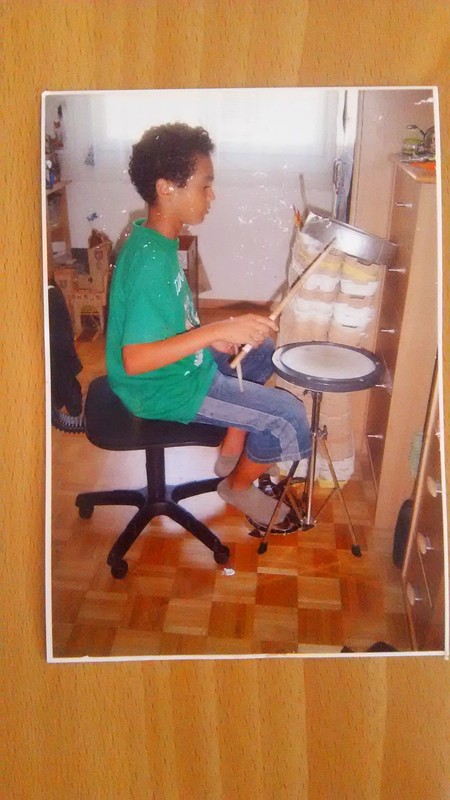|
Happy Sunday! BIBA is returning with another artist spotlight. This week: Jessie Cox! One of today's young, emerging artists, Jessie Cox is a composer, drummer, educator, and music theorist, currently undertaking doctoral studies at Columbia University. His repertoire includes over 100 works for various musical forces, and as a performer he has appeared in venues in the USA, Europe, Africa, and the Caribbean. He graduated from the Berklee College of music in 2017, garnering special recognitions, awards, performances by top performers and ensembles, and scholarships. He is also a founder of the Art Note Ensemble, which explores sound and music in a myriad of approaches. BIBA: How did you discover and enter the world of composition and music?
JC: My earliest musical memories are actually of me dancing, which according to my family I did quite a lot as a kid. Also, I started my musical training at a relatively early age (when I was 3 years old), so I guess music has been part of my world ever since I can remember. Composition came when I started playing my first instrument, which was Djembe. Then I kind of stopped composing, but was always improvising and got very interested in jazz and other improvisation based musics. I picked up composing again when I was 15 and started playing the piano. At that point I also started getting really interested in reading scores, especially of the 2nd Viennese School. To further develop as a composer I wanted to take lessons and so I started searching for a composition teacher, because there actually wasn’t any at the conservatory in our city. I was lucky to find Alfred Schweizer who decided, even though he was retired, to meet me once a week and talk about composition. BIBA: How has your culture and upbringing influenced your compositional and improvisational voice? JC: My first formal instrumental instructions were syllable/word based, where we would speak certain phrases and then execute them on the drums. I think to this day I still approach music in this way - music as a language with which I try to communicate. Growing up in a multicultural household definitely allowed me to draw inspiration from a variety of sources, and it also allowed me to create my own cultural world, since I didn’t feel like I really fit into any pre-existing culture. BIBA: What are some differences that you have observed between the music world of Europe versus the United States? JC: In the US I have only lived in Boston and NYC, and in Europe I only lived in a smaller city in Switzerland, so I can’t really make a more general statement about these two vast regions. Nevertheless, what I have experienced, and I do think this might apply to other areas, is that here in the US there is greater diversity, especially concerning the institutions, of influences and cultural histories. In addition, what is wonderful about New York and Berklee in Boston, is that there is a lot of convolving of different musical heritages, approaches and cultures. BIBA: Who are some composers, musicians, or artists that have helped you grow either directly (through lessons or classes) or indirectly (through their lives, practice, writings, etc ... )? JC: I can’t possibly mention all of the artists, thinkers, scholars and people that have helped me and my work - there are just too many. I think what was always important for me is that I consider all voices and try to understand them on their own terms first. This has led me down many “rabbit holes” where I have learned about things that I’d never even considered (musically or otherwise). Actually, I also approach composition in a similar fashion. When it comes to musical material, instruments, and musicians, I try to gain some insight of what they are about, instead of imposing myself onto them straight away. Through this process I can discover new aspects about myself and find a way of expressing myself that I hadn’t considered or may have overlooked. BIBA: I give you a $10 million commission to compose or create one piece. What would you create (length, instrumental forces, scale, etc ...)? JC: I’d probably try to create some sort of a festival that would happen once every year. At this festival there would be a multitude of artists concerned with creating unusual music - music that one does not experience every day. In addition I would invite other scholars and scientists to present and collaborate, and discuss ideas. This should be a place where unique ideas and experiences can be shared, among a group of people with all imaginable backgrounds; a place where impossibilities happen. Please follow Jessie Cox on SoundCloud to listen to his complex, beautiful music: https://soundcloud.com/jessie-cox-music
2 Comments
Leave a Reply. |
Details
Writings, musings, photos, links, and videos about Black Artistry of ALL varieties!
Feel free to drop a comment or suggestion for posts! Archives
May 2024
|
Member Login
Black concert series and educational programs in Boston and beyond



 RSS Feed
RSS Feed










